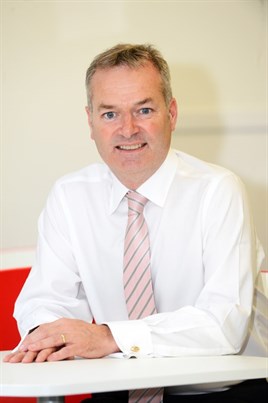One particular critic - a very large global multi-national with major UK interests - was especially blunt: “Why the hell should National Express, with a single, tiny TOC on the north bank of the Thames, have a full seat and voice at the top table, while we are restricted and relegated to an obscure back-room working group?”
I wrote several RAIL Comment pieces sympathising with this view, especially in view of RDG’s near-total silence during the darkest days of the HS2 debate in the summer and autumn of 2013.
How, I asked back then, could a body that boasted of its representative leadership credentials banish the industry’s most committed, involved and long-term players to the dressing room while failing to support (or even comment in detail on, for several months) what will be Europe’s biggest civil engineering project - building HS2? You cannot ‘talk the talk’ without ‘walking the walk’, and at that time RDG was consistently failing the credibility test.
Not for the first time, my phone and email in-tray buzzed with confidential messages of support for a view that seemed to command significant agreement in private but a good deal of tight-lipped frustration in public.
In dealings with the DfT, I sensed a similar unspoken frustration, and was beamed the message that they had made clear to RDG that the suppliers must not be thus excluded. Even though it was all done by raised eyebrow and implication (in true Sir Humphrey style), the message was clear.
Any criticism of this situation was routinely, if politely, dismissed by RDG and those around it. But behind the scenes, things were happening. There had been a skittish early spell, when it was undoubtedly difficult to keep all the key players even in the room, let along talking to each other. And RAIL was discreetly urged to ‘lay off’, in order to give Tim O’Toole a chance to bring the nervous factions together more permanently.
Let’s not forget the weeks and months after the West Coast franchise fiasco. Having Virgin and FirstGroup sitting across the RDG table from each other as full members of a relatively small leadership group must have been challenging for everyone.
There followed a period when former DB Schenker Rail (UK) Planning Director Graham Smith acted as Director General (a one-man, full-time staff) - a period during which it was also reported that RDG had launched a very serious bid to take over the Rail Safety & Standards Board (RSSB). The intention was to give RDG an executive and back-office staff to give its role and presence solid credibility, but this did not come to pass, and eventually RDG won its full-time staff, presence and critical mass by merger with the Association of Train Operating Companies.
Meanwhile, the Rail Supply Group (RSG) was born, to better represent supply chain interests to government (and RDG!).
Overnight, it seemed, the high-profile angst and dissatisfaction gave way to a joint love-in and charm offensive. Supplier critics who once sought to highlight RDG’s unrepresentative nature were suddenly full of praise. All talk was now of integrated, complementary effort, teamwork and partnership. The critical companies of a few weeks before were now love-bombing me with messages of support for RDG. It was extraordinary.
After two and a half years as chairman, the clubbable and effective Tim O’Toole, whose considerable business and interpersonal skills had prevented RDG melting down into a talking-shop group merely serving their own business interests, had given way to Stagecoach Chief Executive Martin Griffiths, who took RDG’s top job.
At the time, I knew Griffiths only by reputation (effective, driven, successful, unflinching), and so asked for an on-the-record interview to find out where RDG (and RSG, come to that) was going. This was immediately agreed to, and was followed up by a dinner invitation with not only Griffiths, but also RSG Industry Co-Chairman Terence Watson (Alstom’s UK president and transport managing director), accompanied for good measure by RDG Director General Michael Roberts, who still runs ATOC as its Director General but who is now frequently the voice and face of RDG’s media output.












